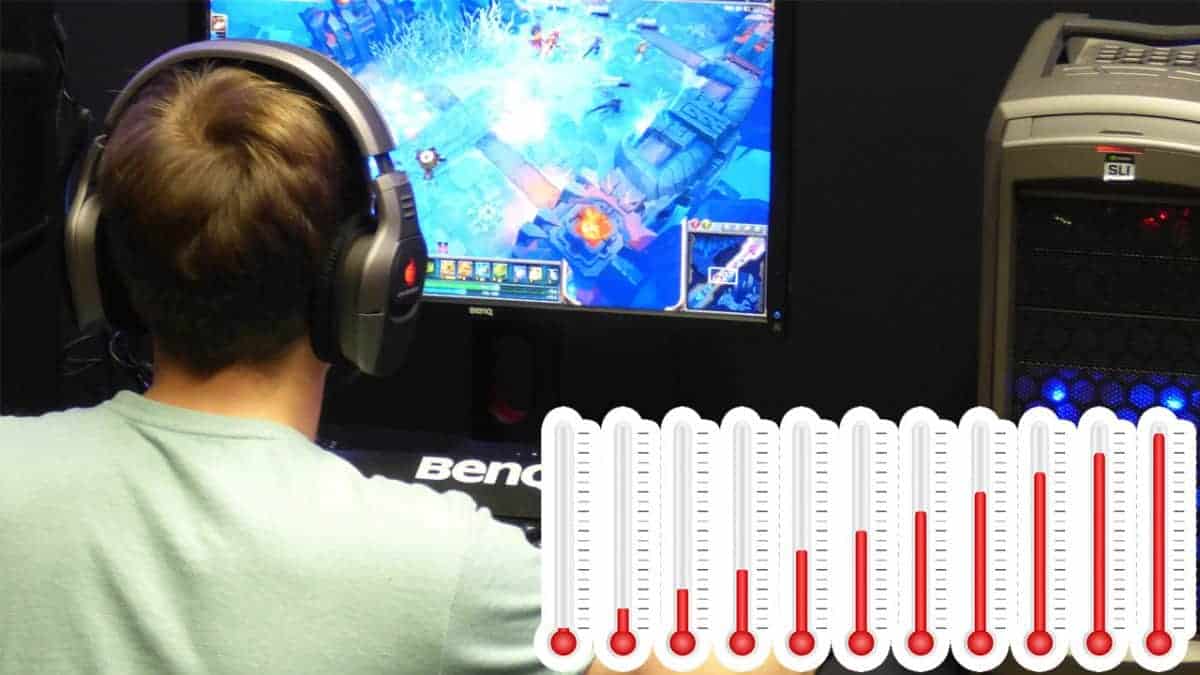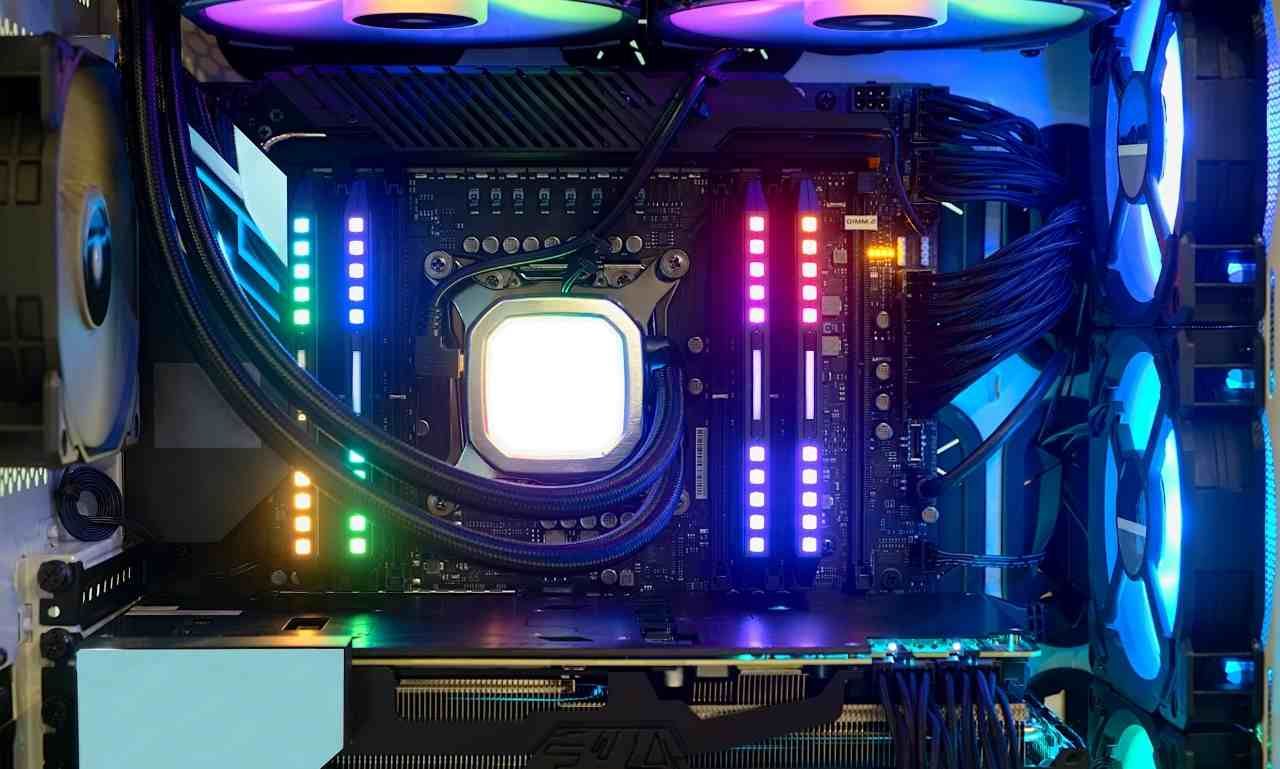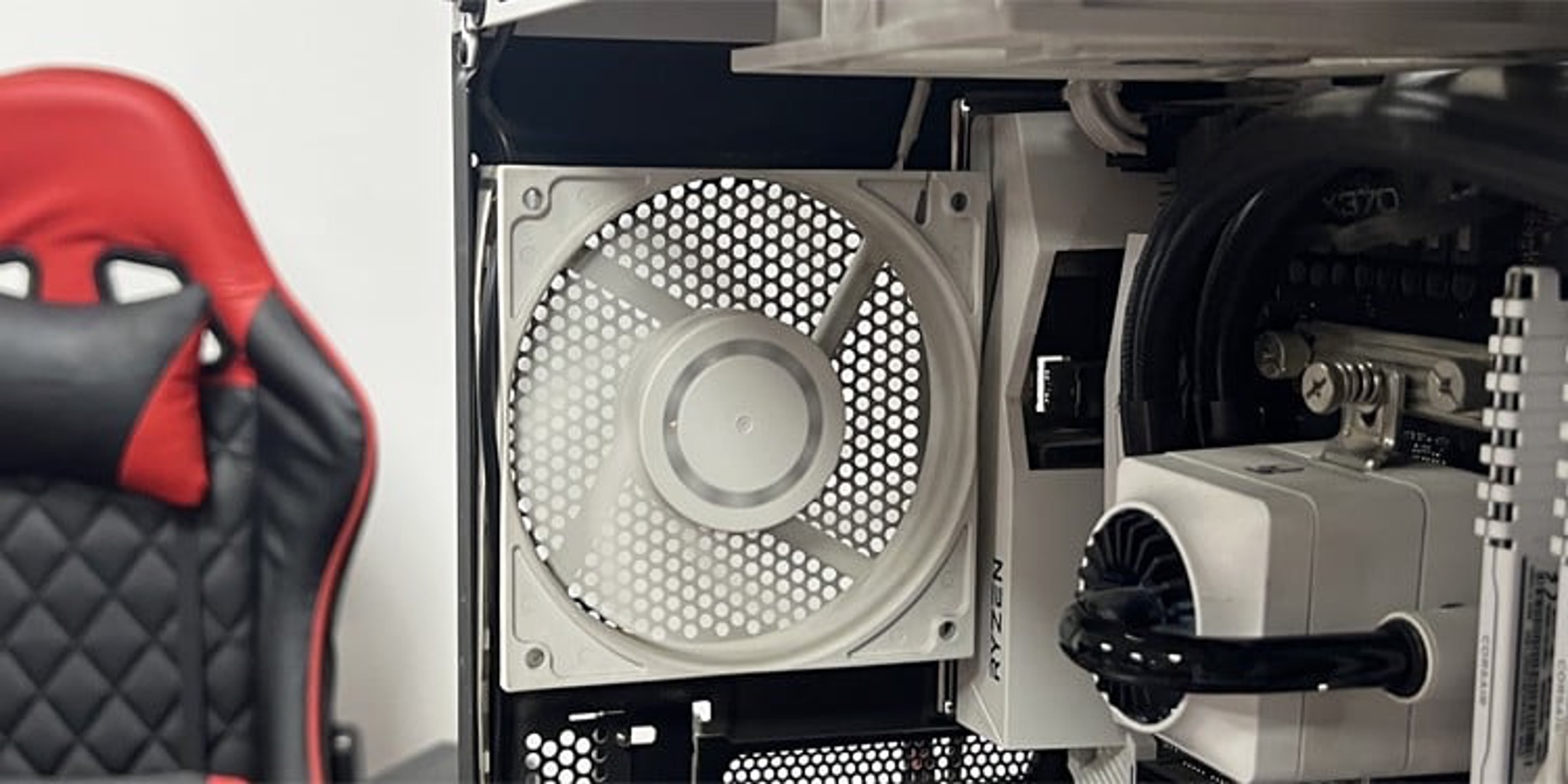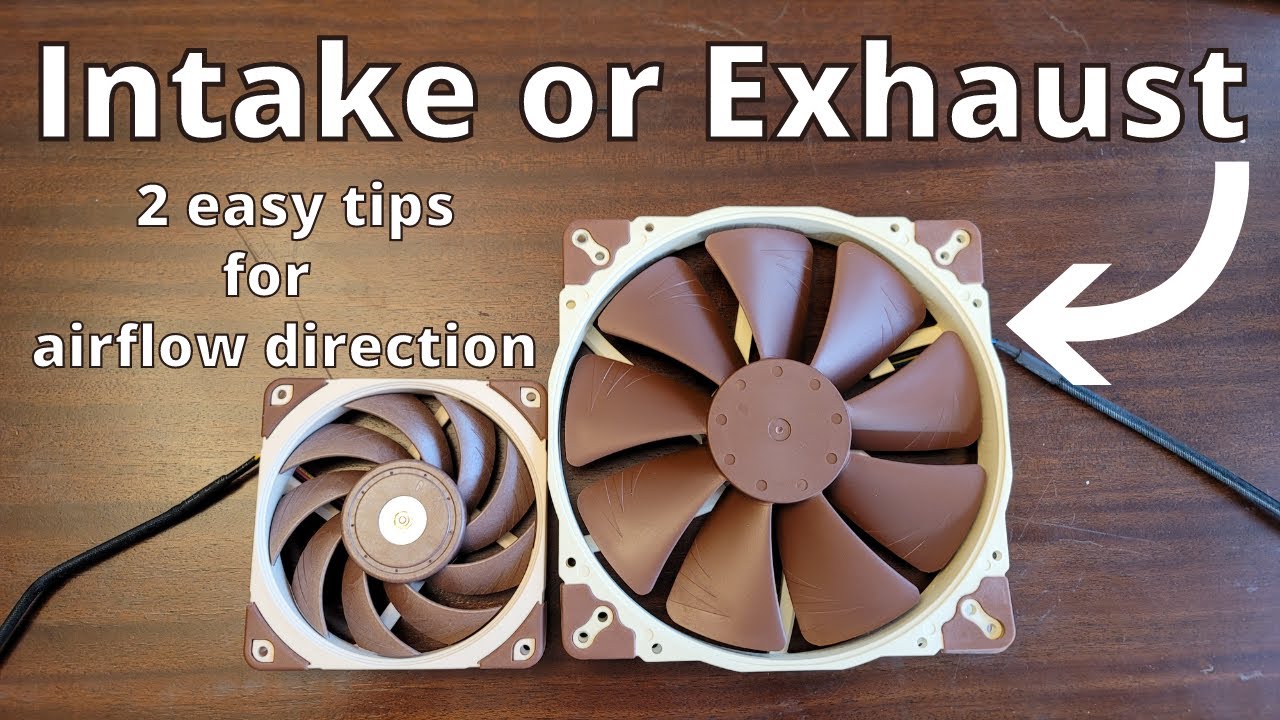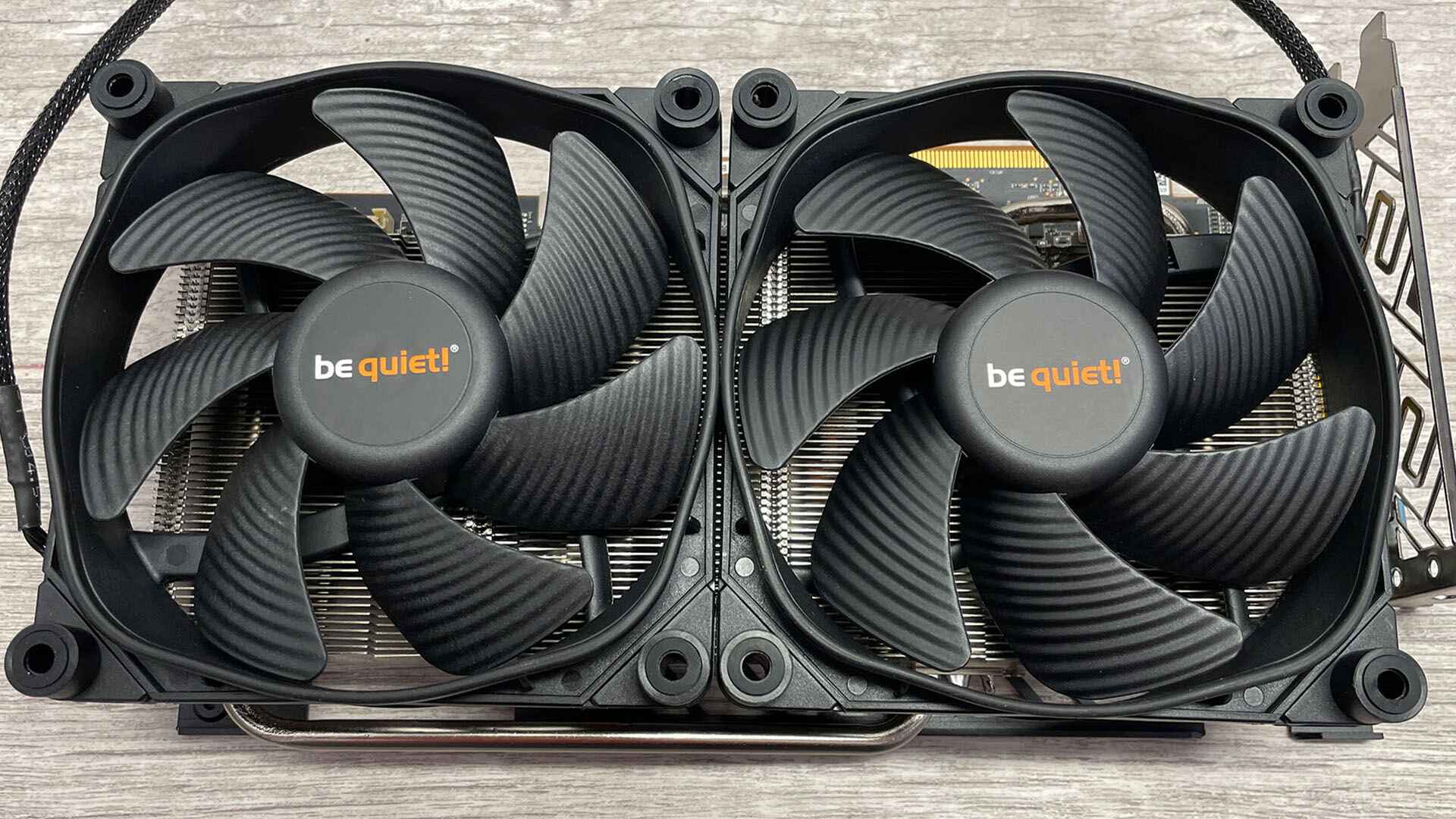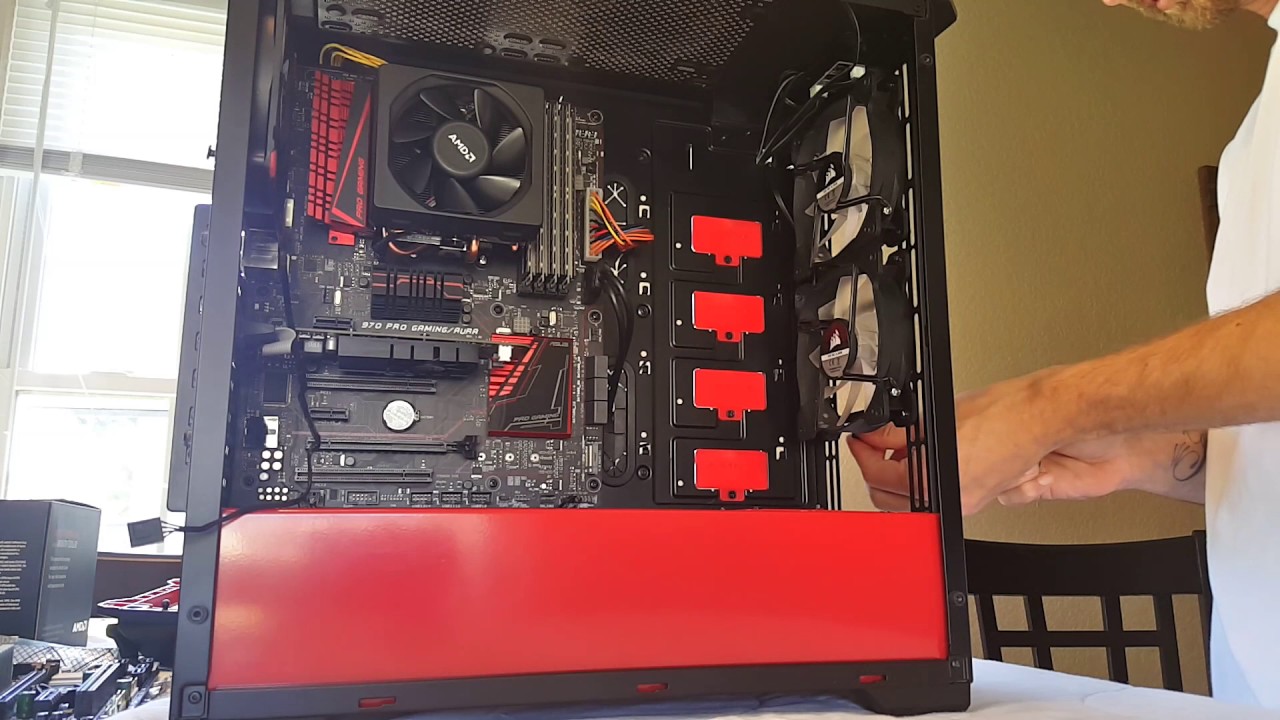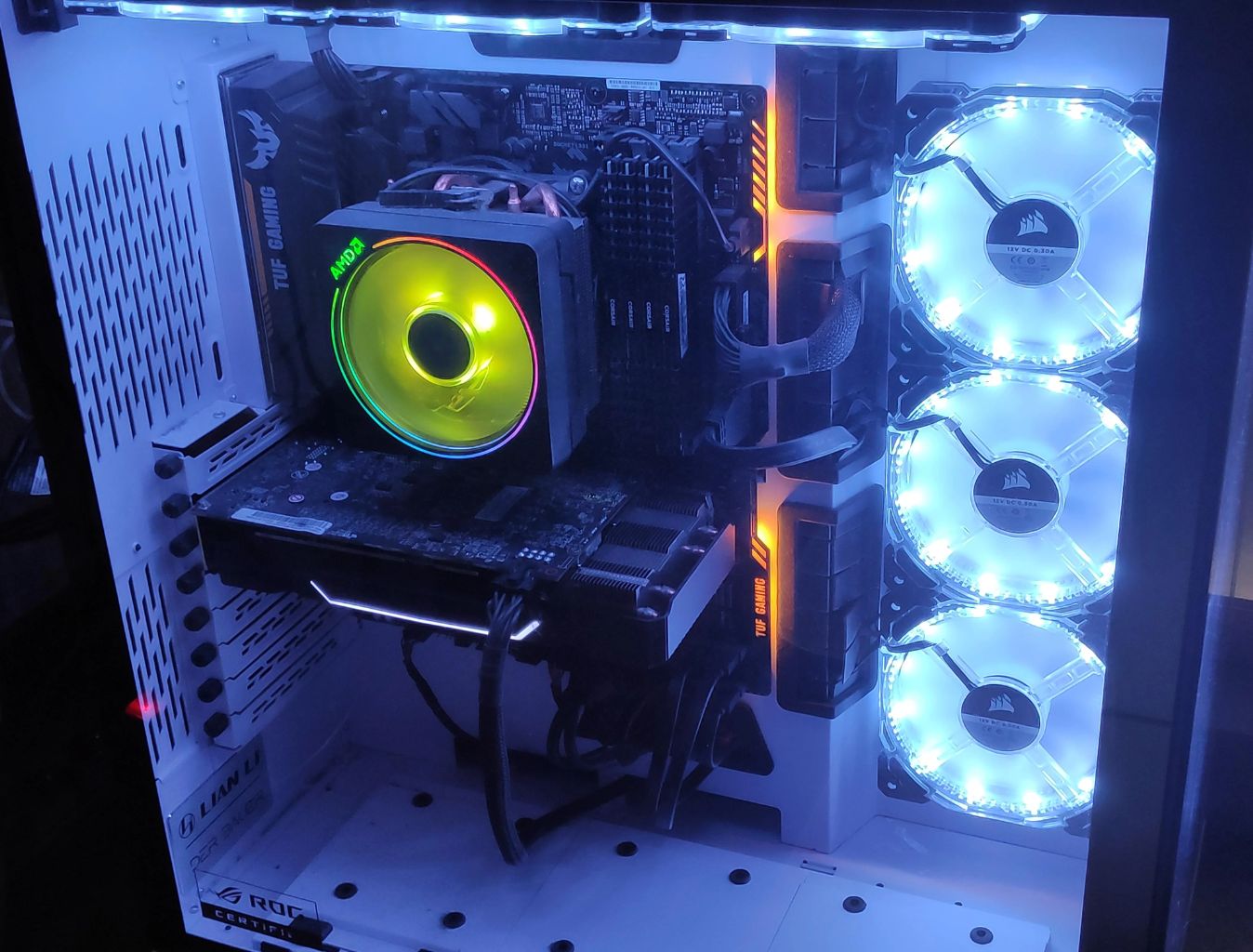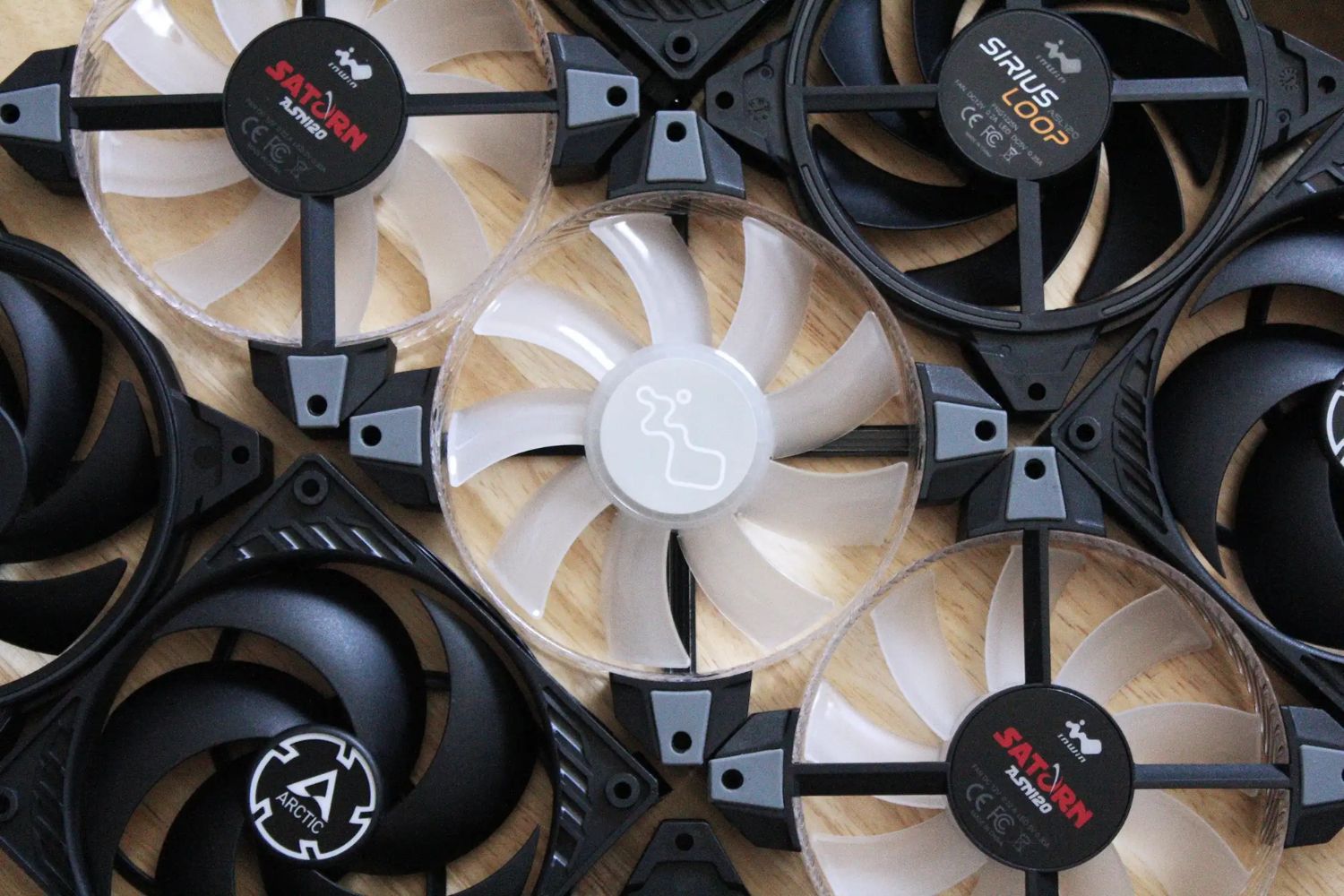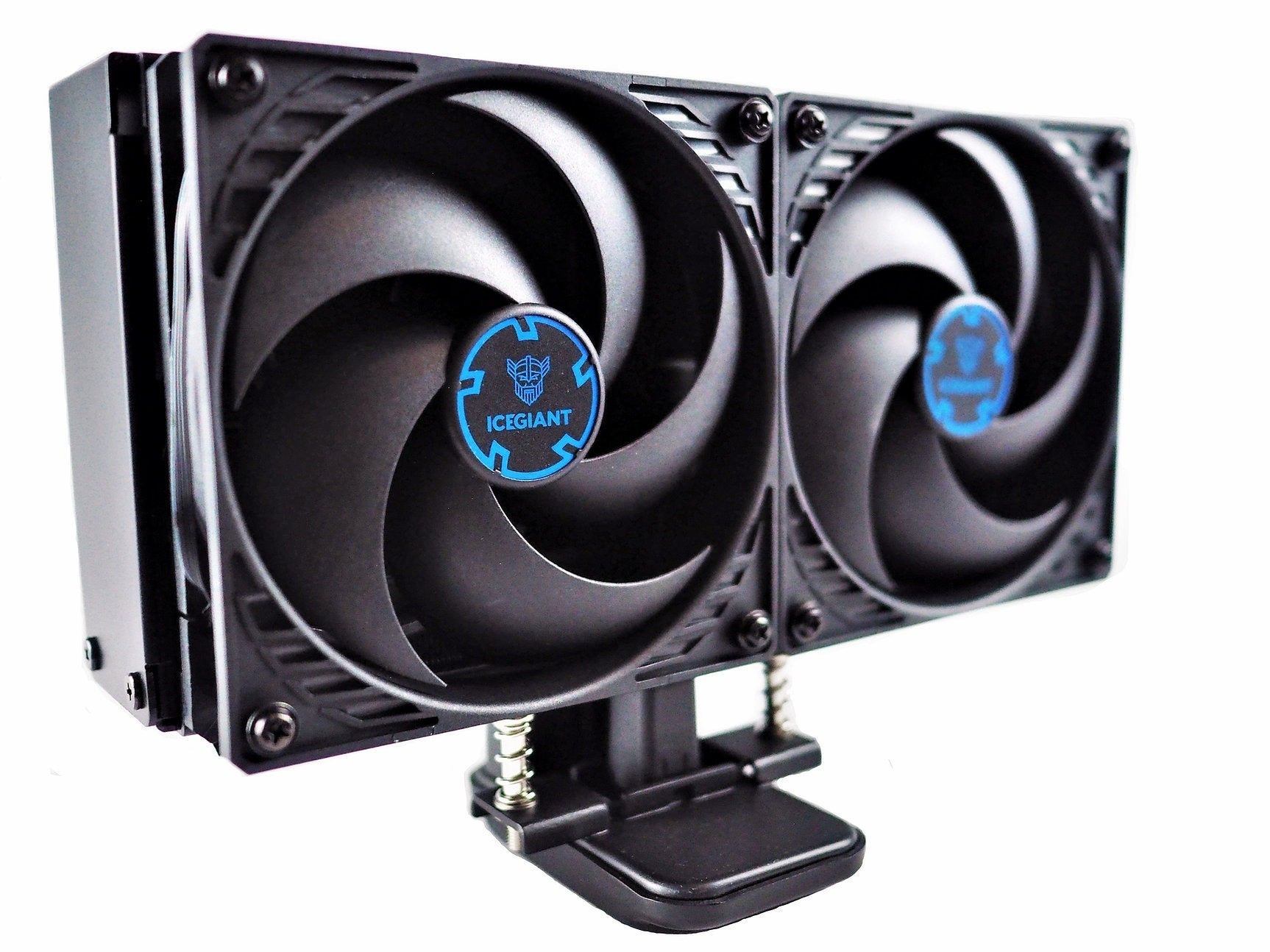Introduction
Gaming on a PC can be an exhilarating experience, immersing you in vivid graphics and intense gameplay. However, as you navigate through virtual worlds and conquer foes, you may have noticed that your PC case gets remarkably hot. The heat generated can be concerning and leave you wondering why it happens.
While it’s normal for a PC to generate heat while running intensive applications, gaming pushes your hardware to its limits, resulting in increased heat production. Understanding why your PC case gets hot during gaming sessions is crucial for maintaining optimal performance and preventing potential damage.
In this article, we will delve into the reasons behind the heat buildup in your PC case during gaming, explore the importance of proper airflow, and provide tips and tricks to keep your system cool. By following these guidelines, you can prolong the lifespan of your components, prevent overheating-related issues, and ensure smooth and uninterrupted gaming experiences.
So, let’s dive in and uncover the factors contributing to the heat buildup in your PC case and learn how to effectively manage it.
Why does your PC case get hot when gaming?
Gaming puts a tremendous amount of strain on your PC’s hardware, causing them to work harder and generate more heat. Here are a few reasons why your PC case gets hot during gaming:
- Processor (CPU) Intensive Tasks: Gaming involves complex calculations and simulations that rely heavily on the CPU. As the brain of your system, the CPU works tirelessly to process game instructions, generate realistic graphics, and handle various background tasks, resulting in increased heat production.
- Graphics Card (GPU) Demands: Graphics-intensive games require a powerful GPU to render high-resolution textures, lighting effects, and realistic animations. The GPU works in harmony with the CPU to deliver stunning visuals, but this also generates significant heat.
- Increased Power Consumption: During gaming, your PC components draw more power to meet the heightened demands. This increased power consumption leads to more electrical energy being converted into heat. Additionally, high-performance components such as overclocked CPUs or GPUs consume even more power and generate more heat.
- Inadequate Cooling Solutions: Poorly designed or insufficient cooling solutions can exacerbate the heat buildup inside your PC case. If the airflow is restricted or the fans are not functioning optimally, the heat will not be efficiently dissipated, causing temperatures to rise.
- Overclocking: Some gamers overclock their CPUs and GPUs to squeeze out extra performance. While overclocking can enhance gaming experiences, it also increases power consumption and heat output. If not properly managed, the excessive heat can damage your components.
Combining these factors, it’s no wonder that your PC case heats up during intense gaming sessions. However, understanding the reasons behind the heat buildup is the first step towards effective heat management. In the next section, we will explore the importance of airflow in keeping your PC case cool.
Understanding the importance of airflow
When it comes to keeping your PC case cool, airflow is a crucial factor. Proper airflow ensures that cool air is efficiently drawn into the case, while hot air is expelled, ensuring optimal temperatures for your components. Here’s why airflow is so important:
Heat Dissipation: Effective airflow helps in dissipating the heat generated by your PC’s components. Cool air is drawn in by the intake fans, while hot air is expelled by the exhaust fans. This continuous circulation of air prevents heat buildup, ensuring that your components stay within safe temperature limits.
Preventing Thermal Throttling: High temperatures can lead to a phenomenon called thermal throttling, where your CPU or GPU downclock themselves to reduce heat generation. This results in decreased performance and can negatively impact your gaming experience. Proper airflow helps in avoiding thermal throttling and allows your components to operate at their maximum potential.
Component Longevity: Excessive heat can cause damage to your PC’s components over time. Adequate airflow prevents the accumulation of heat, extending the lifespan of your CPU, GPU, motherboard, and other critical parts. Cooler temperatures also reduce the risk of component failures due to thermal stress.
Dust and Debris Management: Dust and debris can accumulate inside your PC case over time, obstructing airflow and potentially causing overheating. Proper airflow helps in preventing dust buildup by directing air through dust filters and removing trapped particles from your system. This reduces the need for frequent cleaning and maintenance.
Noise Reduction: A well-ventilated PC case operates more efficiently and produces less noise. By ensuring proper airflow, you can help reduce the strain on cooling fans, resulting in quieter operation during gaming sessions.
Now that you understand the importance of airflow in keeping your PC case cool, let’s explore some tips and tricks to ensure optimal airflow in the next section.
Keeping your PC case cool: Tips and tricks
To maintain optimal temperatures and prevent overheating, here are some essential tips and tricks to keep your PC case cool:
- Position your PC case: Start by placing your PC case in a well-ventilated area. Avoid confining it in tight spaces or against walls that can hinder airflow. Ensure that there’s enough clearance around the case for proper heat dissipation.
- Clean the dust filters: Dust can accumulate on the intake fans and filters, obstructing airflow. Regularly clean the dust filters, either by vacuuming or gently brushing off the dust. This will improve airflow and prevent your components from overheating.
- Manage cable clutter: Proper cable management is essential for optimal airflow. Tidy up the cables inside your PC case, using cable ties or velcro straps to secure them and keep them out of the way of fans and other components. This allows for better airflow and ventilation.
- Optimize fan configuration: Make sure your PC case has an appropriate number of cooling fans. Ideally, you should have intake fans at the front and bottom of the case, and exhaust fans at the rear and top. Proper fan placement helps create a balanced airflow, drawing in cool air and expelling hot air efficiently.
- Consider liquid cooling: Liquid cooling systems, such as all-in-one (AIO) coolers, can provide superior heat dissipation compared to traditional air cooling. Depending on your budget and requirements, investing in a high-quality liquid cooling solution can significantly reduce temperatures and improve overall system performance.
- Use thermal paste: Applying high-quality thermal paste between your CPU and its cooler helps improve heat transfer. When using an aftermarket cooler, ensure you apply an appropriate amount of thermal paste for optimal thermal conductivity.
- Avoid overclocking without proper cooling: Overclocking can increase the performance of your components but also generates more heat. If you plan to overclock, ensure you have adequate cooling solutions in place to handle the additional heat generated.
- Monitor temperatures: Keep an eye on your PC’s temperatures using monitoring software. This will help you identify any potential overheating issues and take appropriate preventive measures.
By following these tips and tricks, you can effectively manage the heat buildup in your PC case and ensure stable and reliable performance during your gaming sessions.
Investing in proper cooling solutions
When it comes to keeping your PC case cool, investing in proper cooling solutions can make a significant difference in maintaining optimal temperatures. Here are some options to consider:
- Air Cooling: Air coolers consist of heatsinks and fans that draw heat away from your CPU and GPU. They are cost-effective and easy to install. When choosing an air cooler, look for one with a larger heatsink and higher airflow capacity for better heat dissipation.
- Liquid Cooling: Liquid cooling systems, such as all-in-one (AIO) coolers and custom loop setups, offer superior heat dissipation compared to air cooling. They use a liquid coolant that absorbs heat from the components and transfers it to a radiator where it is dissipated. Liquid cooling provides better cooling performance and allows for quieter operation.
- Case Fans: Upgrading your case fans can significantly improve airflow and heat dissipation. Look for fans with higher airflow capacity and lower noise levels. Consider adding additional fans, especially if your case supports multiple fan mounts.
- Thermal Interface Materials: Using high-quality thermal interface materials, such as thermal paste or thermal pads, is essential for efficient heat transfer between your CPU, GPU, and their coolers. Apply an appropriate amount of thermal paste to ensure optimal thermal conductivity and heat dissipation.
- CPU and GPU Coolers: Upgrading your stock CPU and GPU coolers to aftermarket options can provide better cooling performance, especially if you’re using high-end components or overclocking. Look for coolers with larger heatsinks, efficient fans, and sturdy mounting mechanisms for improved heat dissipation.
- PC Case Selection: When buying a PC case, consider one with good airflow design, spaciousness, and support for multiple fan placements. Look for cases with dust filters, cable management features, and potential for liquid cooling, depending on your requirements.
- Fan Speed Control: Utilize fan speed control features available in your motherboard’s BIOS or through software utilities. Adjusting fan speeds according to system requirements can help maintain a balance between cooling performance and noise levels.
It’s important to assess your cooling needs based on the components you are using and your system’s intended usage. Investing in proper cooling solutions not only helps in managing temperatures but also improves the longevity and reliability of your PC components.
Monitoring your PC temperatures
Monitoring your PC temperatures is crucial for keeping an eye on your system’s health and ensuring that it stays within safe operating limits. By regularly checking your temperatures, you can identify potential overheating issues and take appropriate actions. Here’s how you can monitor your PC temperatures:
- Software Tools: There are several software applications available that allow you to monitor your CPU and GPU temperatures. Popular options include HWMonitor, SpeedFan, Core Temp, and MSI Afterburner. These tools provide real-time temperature readings, fan speeds, and other relevant information.
- BIOS Monitoring: Most modern motherboards offer built-in temperature monitoring features accessible through the BIOS or UEFI interface. These interfaces provide detailed temperature readings for the CPU, GPU, motherboard, and other components. Check your motherboard’s manual for instructions on accessing these settings.
- Hardware Monitoring Devices: If you prefer a physical display, you can invest in hardware monitoring devices. These devices can be attached to your PC case and provide live temperature readings for various components. Some also offer additional features, such as fan speed control and alarms for high temperatures.
- Set Temperature Alarm Thresholds: Configure temperature alarm thresholds in your monitoring software or BIOS settings. This allows you to receive notifications or audible alerts when temperatures exceed predefined limits, helping you take immediate action to prevent potential damage or performance issues.
- Record and Analyze Temperature Trends: Keep a log of your temperature readings over time to analyze temperature trends and identify any recurring patterns or sudden spikes. This can help in troubleshooting and diagnosing potential cooling or hardware-related issues.
- Understand Safe Temperature Ranges: Different components have different safe temperature ranges. It’s important to familiarize yourself with these ranges to ensure your system stays within acceptable limits. Refer to the manufacturer’s specifications or do some research to determine the safe operating temperatures for your specific components.
Regularly monitoring your PC temperatures will give you peace of mind and allow you to take proactive steps in managing heat buildup. By promptly addressing any abnormal temperature readings, you can prevent performance degradation, component damage, and potential system failures.
Cleaning and maintaining your PC case
Cleaning and maintaining your PC case is essential for optimal airflow, heat dissipation, and overall system performance. Regular cleaning can prevent dust buildup, improve component longevity, and ensure the longevity of your cooling solutions. Here are some important steps to keep your PC case clean:
- Power Off and Unplug: Before starting any cleaning, make sure your PC is powered off and unplugged from the electrical outlet. This ensures your safety and prevents any potential damage to your components.
- Dust Removal: Use compressed air cans or an electric air blower to remove dust from your PC case. Blow air evenly over the components, paying attention to the fans, heatsinks, and other hard-to-reach areas. Be gentle and avoid touching any components, as static electricity can damage sensitive electronics.
- Clean Dust Filters: If your PC case has dust filters, remove them and clean them separately. Gently wash them with warm water and mild detergent, then allow them to air dry completely before reinstalling them.
- Cable Management: Check and tidy up cable management inside your case. Organize and secure cables using cable ties or velcro straps to improve airflow and prevent obstructing fans or other components.
- Visual Inspection: Perform a visual inspection of your PC components, paying attention to fans, heatsinks, and other cooling solutions. Look for any signs of wear, damage, or excessive dirt accumulation, and address any issues accordingly.
- Component Reinstallation: If you removed any components for cleaning, ensure they are properly reinstalled and securely connected. Check all cables and connectors to ensure they are properly seated and tightened.
- Maintenance Schedule: Establish a regular maintenance schedule for cleaning your PC case. The frequency will depend on various factors, such as the environment, air quality, and usage. Typically, cleaning every three to six months is recommended to prevent excessive dust buildup.
- Software Cleanup: While cleaning the physical components is important, don’t forget to perform regular software cleanup as well. Remove unnecessary programs and files, update your operating system and drivers, and run regular system scans to keep your PC running smoothly.
By following these cleaning and maintenance practices, your PC case will stay clean, free of dust, and provide better airflow for heat dissipation. A well-maintained case not only improves cooling performance but also prolongs the lifespan of your components, ensuring they operate at their best for years to come.
Conclusion
Effective heat management is crucial for maintaining the performance, stability, and longevity of your PC during intense gaming sessions. By understanding why your PC case gets hot when gaming and implementing the right cooling strategies, you can keep your system running cool and optimize your gaming experiences.
We explored the various factors that contribute to the heat buildup in your PC case, ranging from CPU/GPU-intensive tasks to inadequate cooling solutions. Additionally, we emphasized the importance of proper airflow in preventing thermal throttling, optimizing component longevity, and reducing noise levels.
To keep your PC case cool, we provided tips and tricks that include positioning your case in a well-ventilated area, cleaning dust filters, managing cable clutter, optimizing fan configuration, investing in proper cooling solutions, and monitoring temperatures using software tools or hardware devices.
Furthermore, we highlighted the significance of cleaning and maintaining your PC case regularly. This helps in preventing dust buildup, improving airflow, and ensuring optimal system performance. By following our cleaning and maintenance guidelines, you can extend the life of your components and maintain their efficiency.
In conclusion, by taking proactive measures, such as understanding the importance of airflow, investing in proper cooling solutions, monitoring temperatures, and maintaining a clean PC case, you can ensure that your gaming sessions are not only enjoyable but also safe and efficient. So take care of your PC, keep it cool, and enjoy endless hours of gaming without worrying about overheating issues!







